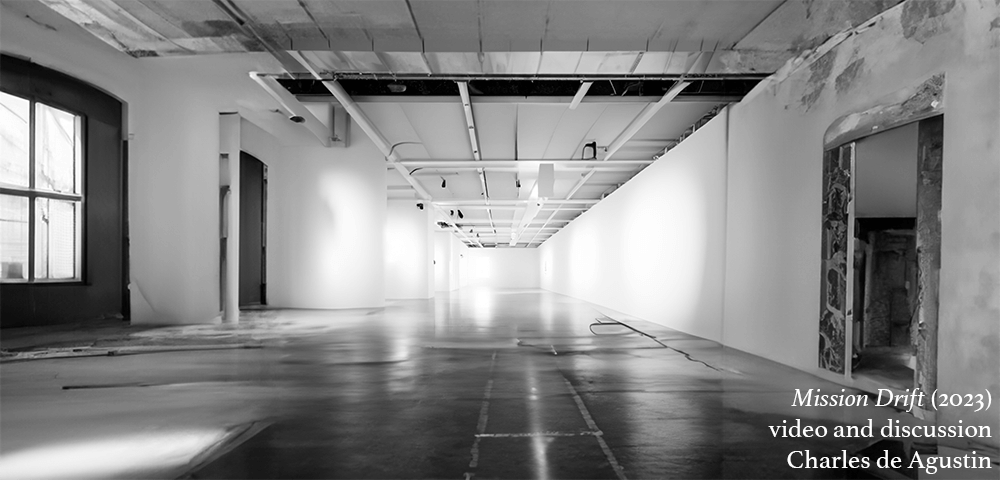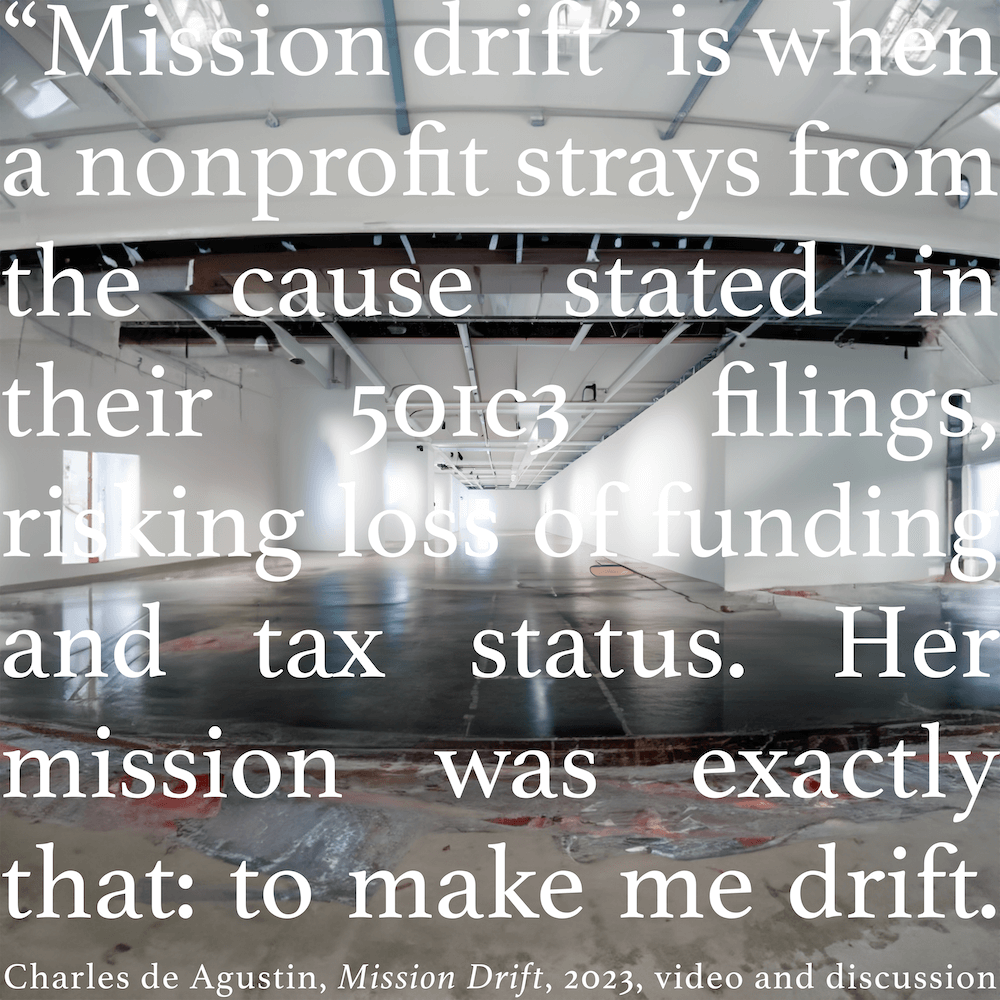
MISSION DRIFT
dir. Charles de Agustin, 2023
USA. 13 mins.
In English with audio description and open captioning.
ASL interpreter available upon request.
WEDNESDAY, NOVEMBER 8 — 7:30 PM
VIDEO FOLLOWED BY OPEN DISCUSSION WITH FILMMAKER, GUESTS AND AUDIENCE
$5 SUGGESTED — NO ONE TURNED AWAY FOR LACK OF FUNDS
Arts workers and their accomplices are invited to join us for a screening and open discussion around Mission Drift, a new film by Charles de Agustin, at Spectacle Theater on Wednesday, November 8, 2023, at 7:30pm.
MISSION DRIFT follows a nonprofit art gallery worker who tries to stay afloat when a horny sadomasochistic philanthropist infiltrates the organization. An experimental essay film tinged with noir and fantasy, the work is driven by research into the sparse history of federal US arts funding since the 1930s and more recent universal basic income trials. The film’s tragic narrative takes aim at how seductive philanthropy can be and points toward the need to constantly reinvent strategies against mechanisms of capture. Various formal strategies in the work also intend to explore the relationships between accessibility, complicity, precarity, and cinema.
Its medium described as “video and discussion,” MISSION DRIFT may only be publicly presented if it is followed by a robust audience discussion on the issues at hand. All guests will be essential parts of the conversation with artist Charles de Agustin, Spectacle volunteers and other guests, rooted in all of our experiences of working in the arts alongside the hosting institution’s specific context. The aim is to expose untapped potential for organizing through the arts, considering what relationship art should have with the state, philanthropy, labor, and social justice today.
Free copies will be provided of a zine of Emily Apter’s essay “The Politics of Cum,” released by Cine Móvil. Inspired by the film, the zine breaks down the artistic and political limitations of NPIC, written with the insider perspective of an arts worker.
Please note that the discussion audio will be recorded, though only an anonymized —with names and other identifying details deleted— text transcript will be used for the artist’s future research purposes.

